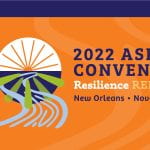 We are pleased to announce the establishment of a Rehabilitation Engineering Research Center (RERC) on Augmentative and Alternative Communication (AAC).
We are pleased to announce the establishment of a Rehabilitation Engineering Research Center (RERC) on Augmentative and Alternative Communication (AAC).
The RERC on AAC is a collaborative center that includes the Pennsylvania State University (Drs. Janice Light and David McNaughton), Oregon Health & Science University (Dr. Melanie Fried-Oken), Invotek, Inc. (Mr. Tom Jakobs), Madonna Rehabilitation Hospital (Drs. Susan Fager and David Beukelman), Northeastern University (Dr. Deniz Erdogmus), and Saltillo, Inc. (Mr. Dave Hershberger). Dr. Janice Light will serve as Principal Investigator for this 5-year, 4.7 million dollar grant from the National Institute on Disability and Rehabilitation Research (NIDRR), U.S. Department of Health and Human Services.
Our goal is that the AAC technologies and knowledge generated by the RERC on AAC will enable individuals with complex communication needs to achieve the basic human right of communication, and to maximize their participation in education, employment, health and community activities.
The RERC on AAC will support a research and development program that addresses 3 areas of rehabilitation science and engineering:
(1) Improving access to technologies through exploration of innovative approaches (e.g., brain control interfaces) and through integration of multi-modalities (e.g., vocalizations, hand movement, head movement, eye-tracking, brain control);
(2) Developing innovative language support technologies, including natural language processing and computer-mediation, to support effective communication for children and adults with limited access to language (e.g., individuals who are pre-literate, those with severe intellectual disabilities, those with severe motor impairments); and
(3) Improving the human computer interface to reduce cognitive visual processing demands and enhance communication performance.
Training and dissemination will focus on effective translation of research to practice in 5 major areas:
(1) Coursework and supervised research and development lab experiences for rehabilitation science students (e.g., engineers, computer scientists, speech language pathologists, educators);
(2) A comprehensive series of webcasts in AAC to provide cutting edge pre-service and in-service training for rehabilitation science professionals;
(3) A national research mentoring forum for doctoral students in AAC to build research capacity in the field;
(4) Support for the RESNA Student Design Competition to encourage undergraduate and graduate student involvement in solving AAC problems;
(5) An AAC Hack-a-thon for students to build rehabilitation science capacity and to crowd source solutions to important AAC problems.

